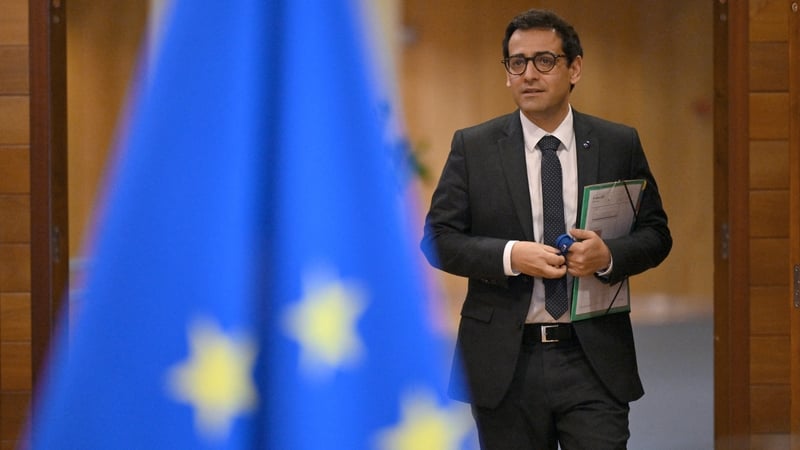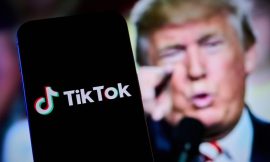The diversification of supply of raw materials is important to stay independent in the future, EU Commissioner for Industrial Strategy Stephane Sejourne has said, adding that the EU should reduce its dependency on China regarding rare earth magnets.
“We must reduce our dependencies on all countries, particularly on a number of countries like China, on which we are more than 100% dependent… The export bans increase our will to diversify,” Sejourne said during a press conference.
China decided in April to impose export curbs on rare earth magnets until new licences are obtained, leaving diplomats, carmakers and other executives from Europe and elsewhere scrambling to secure meetings with Beijing officials and avert factory shutdowns.
China controls more than 90% of global processing capacity for the magnets, used in everything from vehicles and fighter jets to home appliances.
Earlier German automakers became the latest to warn that China’s export restrictions threaten to shut down production and rattle their local economies, following a similar complaint from an Indian EV maker last week.

China’s decision in April to suspend exports of a wide range of rare earths and related magnets has upended the supply chains around the world.
The move underscores China’s dominance of the critical mineral industry and is seen as leverage by China in its ongoing trade war with US President Donald Trump.
President Trump has sought to redefine the trading relationship between the US and its top economic rival by imposing steep tariffs on billions of dollars of imported goods in hopes of narrowing a wide trade deficit and bringing back lost manufacturing.
Trump imposed tariffs as high as 145% against China only to scale them back after stock, bond and currency markets revolted over the sweeping nature of the levies. China has responded with its own tariffs and is leveraging its dominance in key supply chains to persuade Trump to back down.
Trump and Chinese President Xi Jinping are expected to talk this week, White House spokeswoman Karoline Leavitt told reporters yesterday, and the export curbs are expected to be high on the agenda.
“I can assure you that the administration is actively monitoring China’s compliance with the Geneva trade agreement,” she said. “Our administration officials continue to be engaged in correspondence with their Chinese counterparts.”
President Trump has previously signaled that China’s slow pace of easing the critical mineral export controls represents a violation of the agreement reached last month in Geneva.
Shipments of the magnets, essential for assembling everything from cars and drones to robots and missiles, have been halted at many Chinese ports while license applications make their way through the Chinese regulatory system.
The restrictions have triggered anxiety in corporate boardrooms and nations’ capitals – from Tokyo to Washington – as officials scrambled to identify limited alternative options amid fears that production of new automobiles and other items could grind to a halt by summer’s end.
“If the situation is not changed quickly, production delays and even production outages can no longer be ruled out,” Hildegard Mueller, head of Germany’s auto lobby, told Reuters.
Chinese state media reported last week that China was considering relaxing the curbs for European semiconductor firms while the Ministry of Foreign Affairs has said it would strengthen cooperation with other countries over its controls.
However, rare-earth magnet exports from China halved in April as exporters grappled with the opaque licensing scheme.
Frank Fannon, a minerals industry consultant and former US assistant secretary of state for energy resources during Trump’s first term, said the global disruptions are not shocking to those paying attention.
“I don’t think anyone should be surprised how this is playing out. We have a production challenge [in the US] and weneed to leverage our whole of government approach to secure resources and ramp up domestic capability as soon as possible. The time horizon to do this was yesterday,” Mr Fannon said.
Diplomats, automakers and other executives from India, Japan and Europe were urgently seeking meetings with Beijing officials to push for faster approval of rare earth magnet exports, sources told Reuters, as shortages threatened to halt global supply chains.
A business delegation from Japan will visit Beijing in early June to meet the Ministry of Commerce over the curbs, and European diplomats from countries with big auto industries have also sought “emergency” meetings with Chinese officials in recent weeks, Reuters reported.
India, where Bajaj Auto warned that any further delays in securing the supply of rare earth magnets from China could “seriously impact” electric vehicle production, is organising a trip for auto executives in the next two to three weeks.
In May, the head of the trade group representing General Motors, Toyota, Volkswagen, Hyundai and other major automakers raised similar concerns in a letter to the Trump administration.
“Without reliable access to these elements and magnets, automotive suppliers will be unable to produce critical automotive components, including automatic transmissions, throttle bodies, alternators, various motors, sensors, seatbelts, speakers, lights, motors, power steering, and cameras,” the Alliance for Automotive Innovation wrote in the letter.




